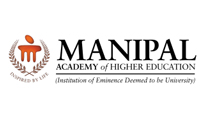Sustainable Development Goal three, which focuses on good health and well-being, intersects with several others and requires effective collaboration and outreach
One of the most pressing Sustainable Development Goals (SDGs) to address is number three: good health and well-being. During the 2024 THE Global Sustainable Development Congress in Bangkok, a panel of university leaders discussed the importance of collaboration in sustainable healthcare. The discussion was held in partnership with the Manipal Academy of Higher Education, based in India.
Sharath Rao, pro vice-chancellor of the Manipal Academy of Higher Education, outlined his institution’s history of transformation and the broader impact this had on the region and its communities. The institution was founded by Tonse Madhava Ananth Pai, who had completed his medical studies and believed that if illiteracy and ill health could be addressed, poverty would disappear.
“The mortality rate in the region is now equal to developed countries and it has the top per capita income among suburban districts in India,” Rao explained. It has revolutionised rural healthcare in India and provided vital employment. Manipal Academy of Higher Education has been recognised as an Institute of Eminence by India’s University Grants Commission. The academy operates across five campuses in India, Malaysia and Dubai, offering multidisciplinary programmes.

Kevin Dunn, provost of Western Sydney University, said he felt that his university had multiple roles to play in producing strong cohorts of medical and allied healthcare professionals and in supporting its own students’ health and that of its community. “We offer mental health services to all staff and students, with a particular focus on men’s health, which is seen as a gap in Australia, especially for First Nations people,” he said. “We have sexual and reproductive services and run a smoke-free campus.”
The university also works with minority communities on conditions such as diabetes and has developed tailored home interventions for young women with eating disorders. “We have developed a decadal plan in concert with our strategic plan and sustainability agenda for health, and the role our university will play in the health and well-being of our region,” Dunn added.
Pattarachai Kiratisin, vice-president for research at Mahidol University in Thailand, echoed the importance of partnership in achieving sustainable healthcare. “Everyone agrees we need a helping hand,” he said. Kiratisin’s work focuses on antimicrobial resistance, and he predicts that by 2050, if we do nothing to combat it, 10 million people will die each year. “Sustainable healthcare cannot persist without looking at this. But if we solve the problem in hospitals, it won’t necessarily go away – we need to work with governments and agriculture companies. This is a global problem and involves so many people,” he added.
As the largest medical school in Thailand, Mahidol University can address antimicrobial resistance directly in its hospitals and by means of telemedicine through which medical staff can discourage patients from requesting antibiotics or ensure their use is appropriate.
The University of Newcastle in Australia is another major regional university operating within a large local healthcare system, meaning its impact can be wide-ranging. Jennifer Milam, the university’s pro vice-chancellor for academic excellence, explained that it is an equity-focused university with a commitment to serving its communities. Its efforts include training more Indigenous doctors and nurses than any other university in Australia. Around a third of students in its medical courses come through bridging courses, having failed to achieve the necessary exam scores in school. Another project involves educating workers in field epidemiology to expand sustainable healthcare in remote Asia-Pacific communities.
The panel:
- Charlotte Ashton, director of external affairs, Office of Health Economics
- Kevin Dunn, provost, Western Sydney University
- Pattarachai Kiratisin, vice-president for research, Mahidol University
- Jennifer Milam, pro vice-chancellor for academic excellence, University of Newcastle, Australia
- Sharath Kumar Rao, pro vice-chancellor, Manipal Academy of Higher Education
- Debbi Stanistreet, head, Department of Public Health and Epidemiology, Royal College of Surgeons in Ireland University of Medicine and Health Sciences
- Bhaskaran Unnikrishnan, professor of community medicine and dean, Kasturba Medical College
- May Moe Wah, country director, Zoological Society of London, Thailand
Find out more about the Manipal Academy of Higher Education.



